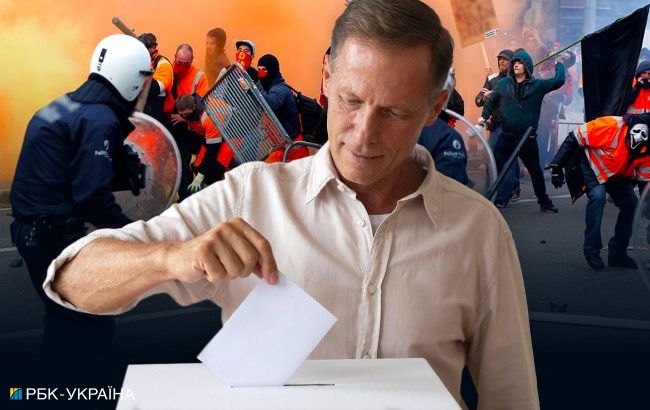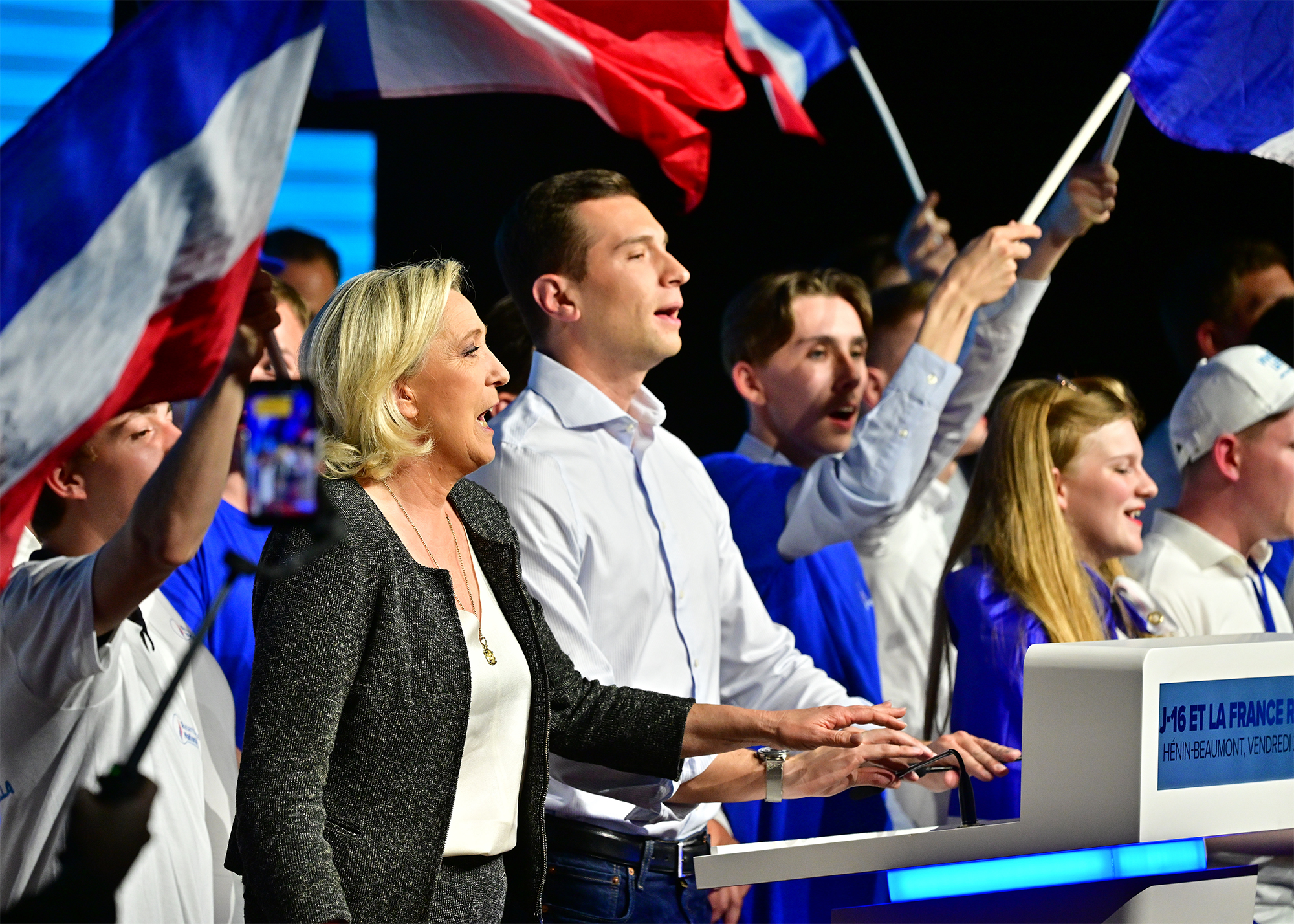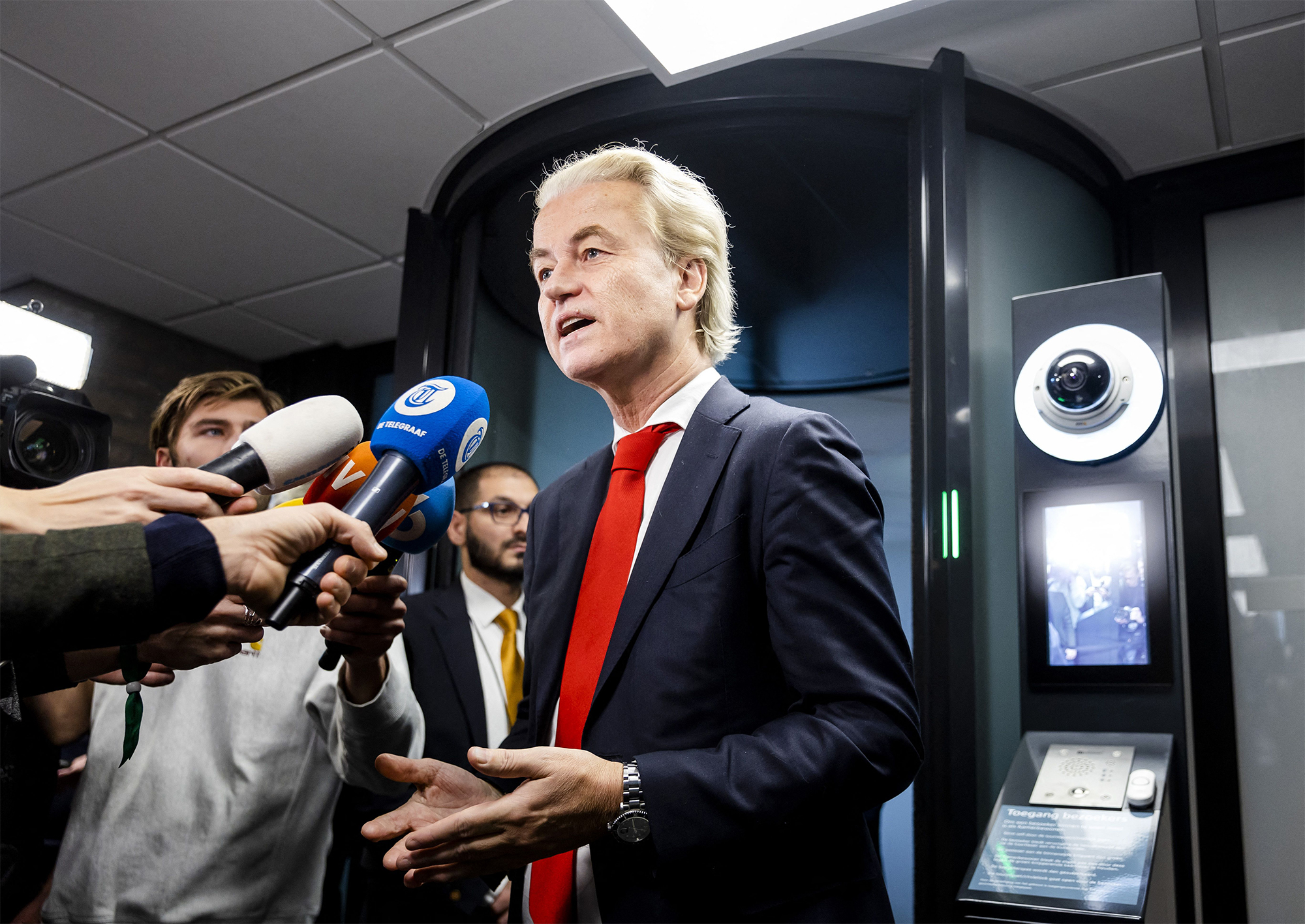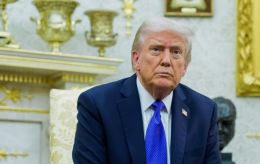Putin's 'friends' left behind? How Europe's turbulent election period ended
 Voting amid protests in the EU (collage by RBC-Ukraine)
Voting amid protests in the EU (collage by RBC-Ukraine)
Over the past few weeks, Europe has seen a series of elections (European Parliament, United Kingdom, France) that have indicated a rise in populists - among whom are many "Putin's friends." And in a few months, global populist number one - Donald Trump - could win. What do these trends indicate and how is Europe overcoming the challenges, read further in the RBC-Ukraine article.
Contents
- What elections in France, the UK, and the European Parliament showed
- What to do with the populists
- The Trump factor and the situation in Europe
A series of elections swept through Europe, resulting in changes of power in several countries. Almost everywhere, populists from both the right and the left, often referred to as "Purin's friends," were prevented from coming to power.
As these elections have shown, there are grounds for dissatisfaction with the old “systemic” parties throughout Europe. Populists, whether from the right or the left, are merely exploiting this dissatisfaction, offering simple solutions to complex problems.
Russia, in turn, tries to use them by financing anyone willing to take the money. The main thing is that they sow chaos. On the other hand, not all populists want to cooperate with Russia, especially after Russia's full-scale invasion of Ukraine. Examples of this are the Brothers of Italy, Law and Justice in Poland, and ultimately, the National Rally in France.
What elections in France, the UK, and the European Parliament showed
The elections to the European Parliament went the most "smoothly." Even though in many countries voters consider them as a protest. Often, it is in the European Parliament elections that those who have worse results in national elections win. Systemic center-rightists from the EPP, center-leftists from the S&D, and centrists from Renew Europe received enough votes to form a coalition again. At the same time, right-wing populists won in France, Austria, Italy, and in Germany – they took second place.
The most dramatic events unfolded in France, where after the victory of the National Rally (French: Rassemblement National, abbreviated RN), President Emmanuel Macron announced early parliamentary elections. This case is the most indicative.
By announcing the elections, Emmanuel Macron essentially went all-in. The risk of "losing" the parliament was enormous and the only hope was the specific two-round system of French elections, where in the second round everyone united against the far-right. This time such a model worked only partially – the National Rally of Marine Le Pen ultimately took only third place in the number of deputies. At the same time, this is still the largest number of far-right deputies in the history of the Fifth French Republic.

The leaders of the National Rally in France at a rally (Photo: Getty Images)
There are several reasons for the success of the RN in these elections: it was not always possible for the centrist forces of the president to agree with others, mainly representatives of the New Popular Front alliance. On the other hand, the far-right learned lessons from previous defeats and used less radical rhetoric.
But perhaps the most unpleasant moment for Macron in this situation is the victory of the leftist forces. The New Popular Front alliance was not united from the beginning, as it included the Socialist Party, the Greens, Jean-Luc Mélenchon's France Unbowed (French: La France Insoumise), and even the Communist Party. By the way, the latter two, like the RN, have a long history of ties with Russia.
Negotiations to form a coalition are currently underway. But the key question remains why right-wing and left-wing populists managed to get so many votes. The main reason is social dissatisfaction with Macron's internal policies, which will continue to erode France from the inside at least until the presidential elections in 2027.
The situation is somewhat different in the United Kingdom. The difference in this country is that the winner of the election – the Labour Party – is a systemic party that by no means intends to challenge the political system of the United Kingdom. What is equally important, they understand the reality of the threat from Russia and in this regard will continue the policy of the conservatives. In particular, the new Prime Minister of the United Kingdom, Keir Starmer, confirmed the permission for Ukraine to use British Storm Shadow missiles for strikes on Russian territory.
Overall, Labour won thanks to the public's fatigue from 14 years of conservative rule and the opportunity to criticize opponents for unresolved problems within the country. According to an Ipsos poll, the five main issues worrying Britons are healthcare (41%), the economy (33%), immigration (30%), inflation (29%), and housing availability (17%). Whether Labour will be able to solve these problems remains an open question.
What to do with the populists
The mass presence of right-wing and left-wing populists in European parliaments puts the question of what to do with them on the agenda. After all, they represent a significant percentage of voters. This problem has already arisen in full force in at least three EU countries.
In Germany, at the national level, the far-right Alternative for Germany (AfD) party has ratings of about 20% but remains isolated. However, this country is a federation, where local parliaments play a significant role. And there are already several examples of situational alliances with the AfD. For the most part, their coalition partners are the Christian Democratic Union (CDU), which was long led by Angela Merkel. Such cases almost always become scandalous but are repeated from time to time.
Thus, German media followed the elections in France from this point of view – whether right-wing populists could continue to be kept isolated. The preliminary conclusion is yes. In the next general elections in Germany, scheduled for 2025, the old systemic parties can hope for a repetition of the French scenario in some form – where everyone unites against the populists. In this regard, a series of local elections at the end of this year in Saxony, Thuringia, and Brandenburg will also be an important stress test for Germany.
A similar situation is developing in Austria, where parliamentary elections are to be held on September 29 this year. The right-wing populist Freedom Party of Austria is currently leading with a rating of 27%. However, the cooperation with right-wing populists has long been unblocked here. The Freedom Party has already participated in government coalitions several times.
There is also another example of involving right-wing populists in power. In the Netherlands, a coalition was finally formed on July 2, which included the far-right Party for Freedom led by Geert Wilders. Although the negotiations were long and difficult – the elections took place in December last year. However, the coalition became possible only after the leader of the Party for Freedom somewhat softened his radical rhetoric and agreed not to claim the post of prime minister.
 Geert Wilders, leader of the Party for Freedom (Photo: Getty Images)
Geert Wilders, leader of the Party for Freedom (Photo: Getty Images)
The situation with right-wing and left-wing populists among our allies remains complex. Somewhere they managed to restrain them, somewhere to isolate them, and somewhere to take them into a coalition on the condition that they soften their rhetoric.
At the same time, there remains another factor that can tip the scales one way or another.
The Trump factor and the situation in Europe
The situation in the United States, the most powerful Western military country, remains tense. In the standoff between the "establishment" Joe Biden and the supposed "anti-establishment" Donald Trump, Trump has managed to capitalize on public discontent, much like right and left-wing populists in Europe.
In the US, intrigue persists as neither candidate has fully revealed their strategies. Trump has not yet named his vice-presidential candidate, nor have their full teams been disclosed. Furthermore, political campaigns have not yet begun bombarding voters with advertisements.
Adding to the election's uncertainty is Biden's situation. Following widely criticized debates, there are increasing calls among Democrats for Biden to step down. Despite this, he has firmly stated his intention to remain in the presidential race, causing confusion within Democratic ranks and giving Trump more opportunities to criticize him.
A potential Trump victory would undoubtedly impact global politics and could energize populists in Europe, with whom Trump has maintained contacts since his first presidency. This, in turn, poses risks for Ukraine's support.
Sources: European election results, statements from European politicians, and public opinion surveys.

